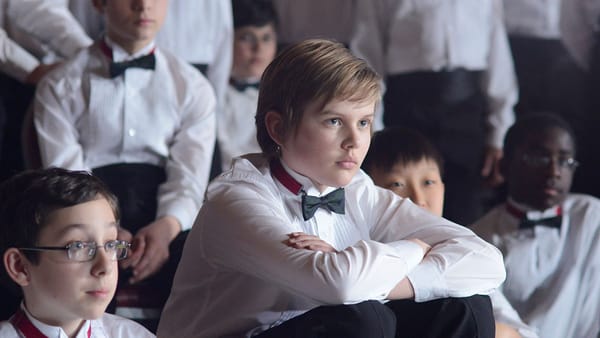If Fashion Week and a serial killer had a baby.

KILLING EVE is what happens when a spy thriller gets drunk on its own potential and decides to flirt, stab, seduce, reinvent itself, and then smirk at you while it burns the rulebook. Phoebe Waller-Bridge’s first season doesn’t just subvert the cat-and-mouse genre — it turns the whole dynamic into a feral, glamorous, emotionally deranged duet between two women who should never have met and yet cannot breathe without the other.
Sandra Oh’s Eve Polastri is the perfect entry point: sharp, restless, brilliant, and deeply bored with the sanitized bureaucracy of intelligence work. Oh plays her with that uniquely human mix of competence and messiness — a woman who throws herself into a global assassin hunt with the excitement of someone who’s finally found something worth ruining her life for. Eve doesn’t fall into obsession; she walks into it with her eyes wide open.
And then there’s Villanelle — Jodie Comer’s career-defining role, a killer with the aesthetics of a runway model and the emotional maturity of a delighted psychopath. Comer doesn’t play her as a villain; she plays her as a force of nature. Every accent, every smirk, every outfit, every murder is a performance within the performance. She is chaos in couture, a woman whose violence is almost secondary to the pleasure she takes in watching people react to her. Villanelle is the most compelling assassin television has ever produced because she isn’t tragic — she’s having the time of her life.
The chemistry between Eve and Villanelle is electric in a way that transcends genre. This isn’t just hunter and hunted — it’s seduction, rivalry, admiration, resentment, longing, and emotional warfare. The show understands that the most thrilling part of obsession is the space between desire and danger. When Eve watches Villanelle, she isn’t just tracking a target; she’s awakening parts of herself she didn’t know existed. When Villanelle watches Eve, she isn’t planning a kill; she’s falling in love with the first person who truly sees her.
Visually and tonally, the series is a riot. Fashion becomes character development. Humor becomes a weapon. Brutality becomes punchline and punctuation. The show moves between countries, languages, and moods with the messy grace of a thriller directed by someone who understands that espionage is equal parts violence and theatre.
And the writing — especially in the Waller-Bridge era — is effortlessly sharp. Dialogue snaps like broken glass, jokes land in the middle of murders, and emotional beats are delivered with such off-kilter precision that you find yourself laughing at scenes that should unsettle you. Killing Eve understands that the modern spy thriller needs less patriotism and more depravity, less solemnity and more personality.
Even as later seasons stumble under different showrunners, the core remains unmatched: two women circling each other like twin catastrophes, rewriting the rules of attraction, power, and storytelling with every glance. The ending may divide, but the journey remains iconic.
KILLING EVE is stylish, savage, seductive television — a beautifully deranged character study disguised as a spy show. It’s a love story sharpened into a weapon, carried by two performances that could cut steel.




